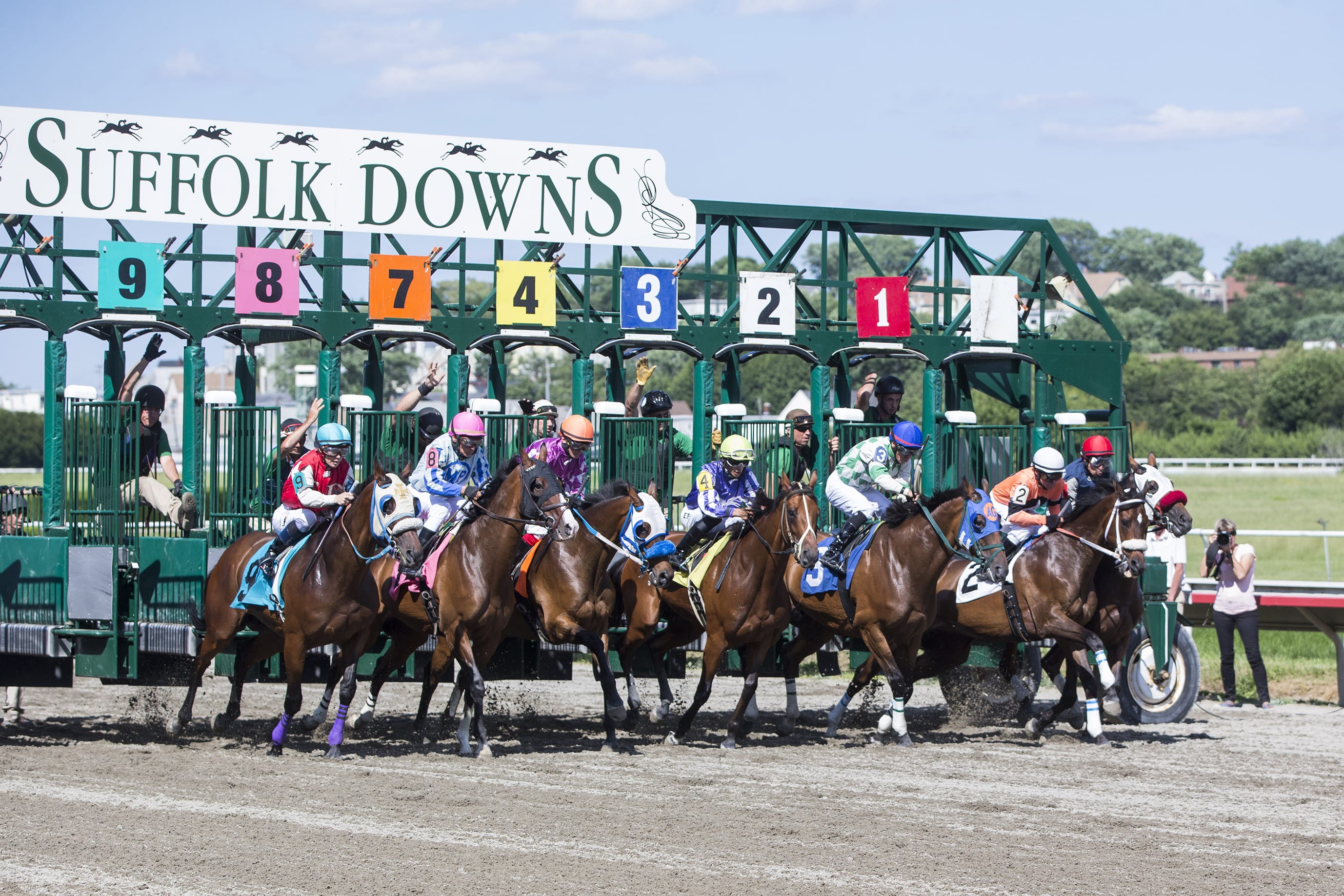On a day that was part festival and part funeral, 12,311 fans came to Suffolk Downs Sunday to bid farewell — for good — to live racing at the venerable East Boston oval.
Though it was inevitable that the end was coming — and was thought to be several years ago, only to be delayed by the track running a few weekends each summer — it was no easier to take for those who consider it a second home.
“It’s a real shame,” said Eddie Donofrio, a retired Boston cop and Turf Club regular. “It was a great place to go and meet great people. I met the best people of my life at the racetrack. Everybody knew everybody up here. It’s a shame.”
Lou Raffetto came to Suffolk Downs as the general manager when the track reopened on New Year’s Day 1992 after being closed for two years. He returned to put together the weekend festivals that the track has been running the last five summers.
“It is bittersweet,” said Raffetto, who took a gamble by coming to Boston 27 years ago, leaving a job at Monmouth on the Jersey Shore, one of the nation’s premier racetracks. “The thing that has hit me more than anything is the amount of enjoyment this place has brought to so many people over the years. So many people have come and run into old friends. It’s heartbreaking.”
Chip Tuttle, a Salem native and 1981 St. John’s Prep grad, was a part-time sportswriter and bartender in 1991 when he was assigned to write a story on Hamilton resident James Moseley, who was reopening Suffolk Downs. That led to his getting a job in the PR office at the track and a distinguished career in horse racing. He is a principal of Conover Tuttle Pace, which counts the Breeders Cup among its clients.
“In the end there is mixed emotions,” said Tuttle, who will testify at the State House Monday in an effort to keep simulcast wagering going for an extended period and hopefully open a new racetrack at the former Great Barrington Fairgrounds in Western Mass. Sports betting would also be of interest. “We had a long time to prepare, but that only makes it a touch easier. This isn’t what everyone signed on for when the gaming legislation was passed in 2011, but that was then and this is now. We’re trying to make the best of it.”
“This place has been the great love of my life,” said indefatigable marketing director Jessica Paquette, who first came to the track as a teenager in 2000, landed an internship, and has been a full-time employee for the last 14 years. “It’s so important to give it the send off it deserves. It’s heartbreaking.”
Built by 3,000 workers in only 62 days in 1935 when Massachusetts authorized parimutuel wagering, Suffolk Downs has played host to some famous horses — Seabiscuit, Whirlaway, John Henry, Riva Ridge, Cigar and Skip Away among them — and a pretty well-known band, as the Beatles played Suffolk Downs in 1966 as part of their last American tour.
When the track opened 84 years ago, Mort Mahony was responsible for installing the parimutuel wagering system, which he had done two years earlier at Rockingham in New Hampshire. Mahony had spent more than three decades running betting rings at tracks up and down the East Coast and in the Midwest, working for legendary bookmaker John Cavanaugh, before parimutuel wagering was legalized. In 1911, he installed the first mutuels at Woodbine in Canada when it became the first track in North America to have fully operational machine wagering.
Mahony’s son, Riggs, and grandson, Pat, followed him into the business. Pat, who ran the mutuels at Hialeah, Calder and Gulfstream in Florida, and at Aqueduct, Belmont and Saratoga in New York, before retiring in 2016, was on hand for the Suffolk Downs finale yesterday, which included the Mort Mahony Classic in the ninth, and penultimate, race on the card.
“I am heartsick about it,” Mahony said of the end of live racing. “I had to be here today. Mort was here at the beginning and this is the end. I wouldn’t miss it.”
Jay Bernardini has been training horses at Suffolk Downs for 30 years and has been coming to the track for 43 years, since his father brought him when he was 9. Though he has been forced to move his operation to West Virginia and Ohio, he has returned for the weekend meets and kept up the dominance that made him the perennial leading trainer when the track was running a full meet.
“This is the real end,” he said in the winner’s circle Sunday. “We’ll try to enjoy it today, but it will be a little more difficult tonight when the horses leave. Then it will hit us.”
Bernadini’s wife, Carol, and son, Kyle, a 2018 St. Mary’s High grad, have remained in their Lynn home while he comes back as often as possible. He understands that the horse racing business can be nomadic by nature.
“It’s disappointing, but in this business you constantly have to move,” he said. “You have to go where the racing is.”
That will no longer be East Boston, Massachusetts, as of 6:10 p.m. Sunday, when Colonial Front, the last-place finisher in the 10th and final race, crossed the finish line, 30,671 days after it all began on July 10, 1935. At Suffolk Downs, it will never be post time again.
By Paul Halloran
For the Item

